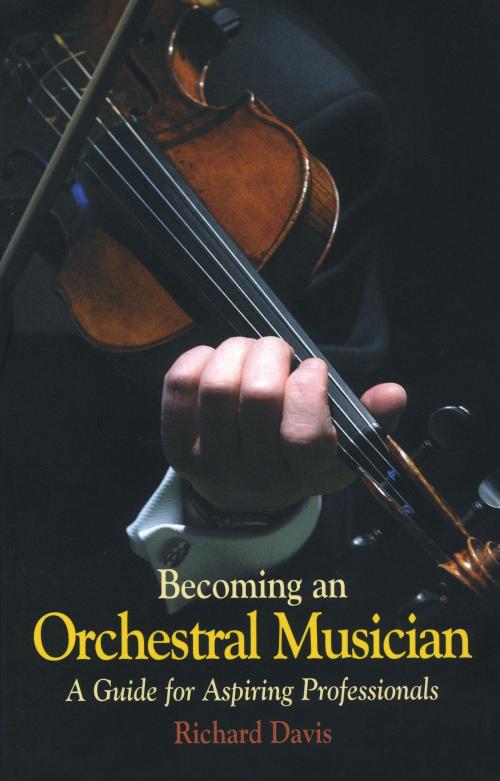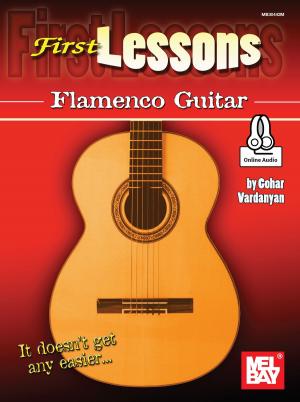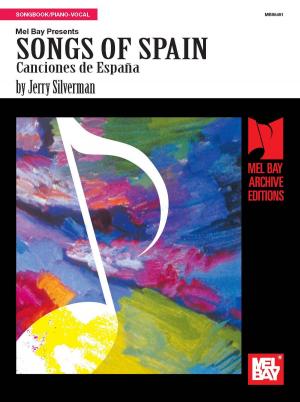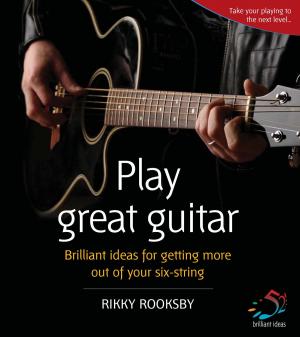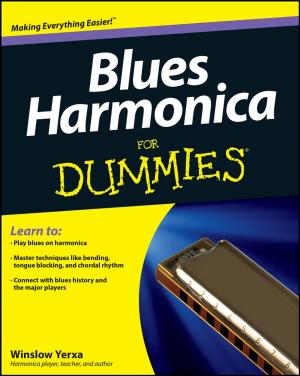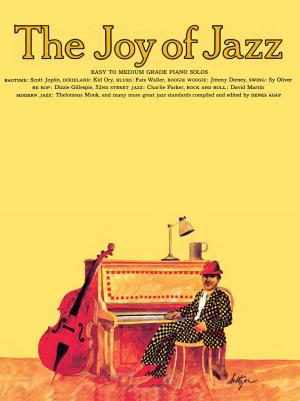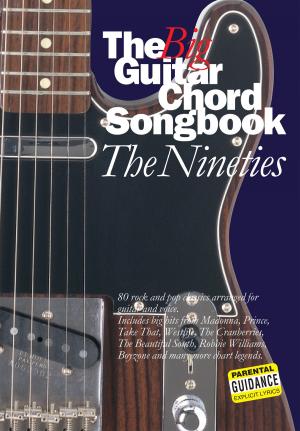Becoming an Orchestral Musician
A Guide for Aspiring Professionals
Nonfiction, Entertainment, Music, Music Styles, Classical & Opera, Chamber, Instruments & Instruction, General Instruments| Author: | Richard Davis | ISBN: | 9781900357326 |
| Publisher: | Giles de la Mare Publishers Ltd | Publication: | July 18, 2012 |
| Imprint: | Giles de la Mare Publishers | Language: | English |
| Author: | Richard Davis |
| ISBN: | 9781900357326 |
| Publisher: | Giles de la Mare Publishers Ltd |
| Publication: | July 18, 2012 |
| Imprint: | Giles de la Mare Publishers |
| Language: | English |
Becoming an Orchestral Musician takes you on a journey into the musical profession. It is the first comprehensive guide for professional musicians on how to succeed in joining an orchestra or ensemble, and how to survive as an orchestral musician. Such crucial topics as how to obtain the right tuition, music college versus university, auditioning, nerves, the secrets of ensemble playing and intonation, conductors, the mechanics of the orchestra, performing philosophies and strategies for survival are covered in separate sections. The matter of how to explore and adapt one's musical psyche, the pitfalls of a career in music and the highs and lows of performing are also discussed. The history, mythology and science of music-making and numerous anecdotes provide a vivid background. It is essential reading for all orchestral musicians, including players of every instrument, whether at college or university or during their career, whether full-time or part-time, and whether professional or amateur, and also for the parents of budding instrumentalists. There are probably more orchestras and ensembles in the length and the breadth of Britain today than ever before. With the renewed recognition in schools of the importance of music, the competition among younger musicians has become intense. Schools and colleges need to be well informed about career guidance for their students. Richard Davis's book will give the answers to many of the questions those students will be asking. It has been warmly welcomed by his colleagues in the BBC Philharmonic, and by other musicians, too. Twenty of them have been interviewed by him specially for it on their experiences and on advice they would like to give to younger musicians on many different themes. They include principals and rank and file players, soloists, academics, music critics, fixers, chamber musicians and people involved in management. John Clare in Daily Telegraph: recommended, in ‘Any Questions?’ Sir Edward Downes: ‘Thanks so much for your marvellous book...You should be very proud of it - and [Joan and I] both feel it ought to be a “set book” at Music Colleges for all prospective orchestral players.’ Classical Music: ‘...[his] practical guide invites systematic reading from cover to cover...Experienced players will nod in agreement with something on every page...newcomers will be profoundly grateful for page after page of advice just not obtainable from normal conservatoire training...the many tips on relationships with colleagues often overlooked by full-time performers...Beautifully laid out on good-quality opaque paper...Davis’s book is an unbeatable-value master-class.’ Classic FM, The Magazine (four stars): ‘...[his] invaluable... book. It certainly fills a gap in the market: no one previously has thought to spell out what it takes to become (and survive) as an orchestral musician. Davis, principal flute of the BBC Philharmonic and a senior lecturer at the Royal Northern College of Music, is better qualified than most to tackle the subject. He has a pragmatic, detached view of the business...This should be required reading for all music students.’ Maggie Cotton, percussionist with City of Birmingham Symphony Orchestra for forty years: ‘Richard Davis’s most excellent book...a gem of unvarnished, thoughtful advice...it should be required that every music teacher in the land should have a copy, digest it thoroughly and pass on the messages to their young...[it] is worth its weight in gold.’ Musician (Musicians’ Union Magazine): ‘Essential reading.’ (December 2005) Glasgow Herald: ‘...it will undoubtedly prove helpful to anyone considering a career in music...for any concert goer who has ever wondered how the orchestra onstage functions...it also offers an illuminating glimpse into [its] workings and dynamics...’ Pan, Journal of the British Flute Society
Becoming an Orchestral Musician takes you on a journey into the musical profession. It is the first comprehensive guide for professional musicians on how to succeed in joining an orchestra or ensemble, and how to survive as an orchestral musician. Such crucial topics as how to obtain the right tuition, music college versus university, auditioning, nerves, the secrets of ensemble playing and intonation, conductors, the mechanics of the orchestra, performing philosophies and strategies for survival are covered in separate sections. The matter of how to explore and adapt one's musical psyche, the pitfalls of a career in music and the highs and lows of performing are also discussed. The history, mythology and science of music-making and numerous anecdotes provide a vivid background. It is essential reading for all orchestral musicians, including players of every instrument, whether at college or university or during their career, whether full-time or part-time, and whether professional or amateur, and also for the parents of budding instrumentalists. There are probably more orchestras and ensembles in the length and the breadth of Britain today than ever before. With the renewed recognition in schools of the importance of music, the competition among younger musicians has become intense. Schools and colleges need to be well informed about career guidance for their students. Richard Davis's book will give the answers to many of the questions those students will be asking. It has been warmly welcomed by his colleagues in the BBC Philharmonic, and by other musicians, too. Twenty of them have been interviewed by him specially for it on their experiences and on advice they would like to give to younger musicians on many different themes. They include principals and rank and file players, soloists, academics, music critics, fixers, chamber musicians and people involved in management. John Clare in Daily Telegraph: recommended, in ‘Any Questions?’ Sir Edward Downes: ‘Thanks so much for your marvellous book...You should be very proud of it - and [Joan and I] both feel it ought to be a “set book” at Music Colleges for all prospective orchestral players.’ Classical Music: ‘...[his] practical guide invites systematic reading from cover to cover...Experienced players will nod in agreement with something on every page...newcomers will be profoundly grateful for page after page of advice just not obtainable from normal conservatoire training...the many tips on relationships with colleagues often overlooked by full-time performers...Beautifully laid out on good-quality opaque paper...Davis’s book is an unbeatable-value master-class.’ Classic FM, The Magazine (four stars): ‘...[his] invaluable... book. It certainly fills a gap in the market: no one previously has thought to spell out what it takes to become (and survive) as an orchestral musician. Davis, principal flute of the BBC Philharmonic and a senior lecturer at the Royal Northern College of Music, is better qualified than most to tackle the subject. He has a pragmatic, detached view of the business...This should be required reading for all music students.’ Maggie Cotton, percussionist with City of Birmingham Symphony Orchestra for forty years: ‘Richard Davis’s most excellent book...a gem of unvarnished, thoughtful advice...it should be required that every music teacher in the land should have a copy, digest it thoroughly and pass on the messages to their young...[it] is worth its weight in gold.’ Musician (Musicians’ Union Magazine): ‘Essential reading.’ (December 2005) Glasgow Herald: ‘...it will undoubtedly prove helpful to anyone considering a career in music...for any concert goer who has ever wondered how the orchestra onstage functions...it also offers an illuminating glimpse into [its] workings and dynamics...’ Pan, Journal of the British Flute Society
